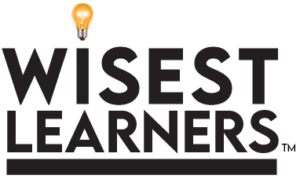The need for efficient and effective learning is clear in today’s fast-paced world. We’ve seen a notable increase in the average years of education in recent decades, driven by the demands of ongoing technological advancements. As technology evolves, people are switching jobs and professional fields more often. These transitions require them to acquire new skills and knowledge to stay competitive. In this article, we’ll delve into why mastering the art of learning is crucial in the 21st century. We’ll also highlight parents’ vital role in supporting their children’s educational journey in this ever-advancing technological landscape.
Learning has changed significantly in recent years due to various important factors. In the past, we used to think of formal education as a single investment in knowledge and skills. You’d follow a structured educational path, get your degree, and then use what you learned in your career. But today’s ever-changing world demands a more dynamic learning approach beyond this traditional linear model.
A significant driving force behind this change is the breakneck pace of technological progress. New technologies like artificial intelligence, automation, blockchain, and augmented reality continually reshape industries and our way of life and work. To stay competitive in the job market, individuals must continuously refresh and adapt their skills to these technological shifts. Learning is no longer limited to the early years of life; it has transformed into a lifelong pursuit.

Another noteworthy shift in the professional world is increased job mobility brought about by the rise of the gig economy. The era of spending your entire career with one company is in the past. Nowadays, individuals often switch between various jobs and industries throughout their working lives. This frequent job hopping requires a wide range of skills and a broad knowledge base. This means that learning today is about mastering a particular field and being adaptable and versatile in response to the ever-changing job market.
A stark statistic underscores the need for a dynamic approach to learning. Only 21% of college graduates find that they apply most or all of the knowledge gained from their formal education in their chosen careers. This shows a considerable gap between what we learn in school and what we need for our jobs. Many graduates often need additional skills to excel in their chosen professions.
Another driving force in the need for dynamic learning is that 39% of individuals considering a career change are primarily motivated by the potential for higher income. The desire for improved financial opportunities substantially pushes people to transition into different sectors or roles, motivating them to explore new career paths.
Lastly, only 14% of the working population is content with their current job and prefers to keep things as they are. This suggests that most of the workforce is open to career changes, reflecting an ongoing desire for personal and professional development. What’s striking is that 70% of employees actively seek to shift their career paths, mirroring the unpredictability of the job market. Many of the workforce actively explore new opportunities and alternative career directions.
With these shifts in the learning landscape, efficient learning becomes all the more critical. Time is a limited resource, so quick and efficient knowledge acquisition can significantly impact one’s personal and professional life. It is crucial to understand that learning is a lifelong process, not just a single event, requiring continuous adaptation and the ongoing development of skills and knowledge. Life-long learning is a skill that can and should be cultivated, and the best time to do so is during childhood or elementary school. Building a strong foundation in learning methods and adaptability from an early age can set individuals on a path to success in the ever-changing 21st-century landscape. Teaching children how to learn efficiently and effectively can better equip them to tackle the challenges of a rapidly evolving world.
Parents often juggle many responsibilities, from work demands to household chores and personal commitments. This often means they have limited time available to spend with their children. According to a 2021 survey by the Bureau of Labor Statistics, parents with children under 6 spent an average of only 2.6 hours per day caring for and helping their household children. As children grow older, the time parents spend with them decreases. Parents with children between 6 and 12 spent an average of 1.8 hours per day, while parents aged between 13 and 18 managed just around 1.2 hours per day. These numbers shed light on the scarcity of family time and the challenges parents face in balancing their various responsibilities.
Parents’ demanding work schedules further influence these numbers, their children’s after-school activities, and other commitments. A survey by The Family Academy reinforces this reality, revealing that many parents feel satisfied spending 2-4 hours daily with their children during the week.
In this context, the role of parents in education takes on immense significance, especially in nurturing lifelong learning skills. Research consistently demonstrates the positive impact of parental involvement on a child’s academic performance. By actively engaging in their children’s educational journey, parents lay the groundwork for a commitment to continuous learning. Maintaining open communication with teachers allows parents to understand their child’s progress and areas needing improvement, fostering a collaborative approach where educators and parents work together to optimize the child’s learning experience. A comprehensive 2019 review by the American Psychological Association, analyzing 448 studies, reaffirms that active parental participation leads to higher academic achievement, increased school engagement, and enhanced student motivation.
The partnership between parents and schools cannot be understated. A study conducted in 2005 at the Johns Hopkins University Center on School, Family, and Community Partnerships showed that schools promoting family support for their children’s math learning at home experienced a substantial increase in the percentage of students achieving proficiency or above on standardized math tests. Additionally, research findings from the National Literacy Trust indicate that parent involvement in reading activities has a profoundly beneficial impact. This involvement improves reading achievement and enhances language comprehension, expressive language skills, student interest in reading, attitudes toward reading, and classroom attentiveness.
Parents can take practical steps to support learning activities at home, creating an environment that sparks curiosity and a passion for knowledge. We can encourage reading, explore educational resources, and involve children in problem-solving to help nurture our child’s learning abilities. When we actively participate in school activities, attend parent-teacher conferences, and engage in parent-teacher associations, we reinforce the importance of education and demonstrate their commitment to their child’s growth. Doing so can improve our children’s motivation, engagement in school, and overall academic achievement. By being active and involved parents, we can maximize the effectiveness of our engagement and foster our children’s attitude toward learning.
In conclusion, as we emphasize the importance of mastering the art of learning in the 21st century, it is essential to recognize parents’ vital role in this endeavor. Parents can mold a child’s lifelong learning skills with active involvement, communication with educators, and support for at-home learning activities, laying the foundation for a future marked by adaptability, resilience, and an insatiable curiosity. Lifelong learning begins at home, and we parents are the guiding beacons on this path of continuous growth and discovery.




